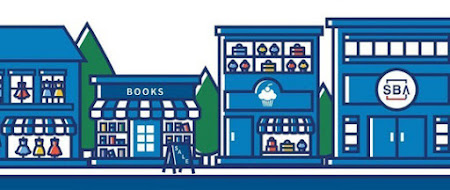Entrepreneurship in the Face of Adversity is celebrated during National Small Business Week.
During National Small Business Week (May 1-7, 2022), the SBA will honour outstanding small companies with a four-day series of activities that will include a live virtual summit, instructional workshops, and award ceremonies.
Small companies from all throughout the nation will be honoured at the virtual summit for their tenacity, innovation, and originality. It will also honour SBA partners for their contributions to small company and entrepreneurship growth, disaster recovery, government contracting, financial development, and general assistance.
"National Small Business Week is a time to praise and celebrate America's entrepreneurs and creative businesses," according to the organisation. "Building a Better America Through Entrepreneurship" is this year's theme, which "celebrates the fortitude and perseverance of America's entrepreneurs who are helping to fuel our nation's historic economic resurgence," according to SBA Administrator Isabella Casillas Guzman. "We're on our way to creating a stronger, more competitive American economy based on families, workers, and small businesses."
This year's National Small Business Week, according to Guzman, will provide entrepreneurs in rural, suburban, and urban communities across the country with a week-long event highlighting the tools and information they need to continue to power our economy, strengthen our supply chains, and deliver the products and services Americans rely on every day.
"I'm looking forward to honouring our nation's small business titans and their enormous effect on our economy and communities," Guzman added.
This year's virtual summit will concentrate on providing entrepreneurs with access to important government resources, educational programmes, and networking opportunities to help them pivot and develop in the face of present and future obstacles. Small business entrepreneurs are encouraged to take use of the new possibilities to guarantee that every American may realise their ambition of establishing and expanding a small company.
SCORE, Google, T-Mobile, Square, Meta, and Amazon will present on "Accelerating Your Small Business Success with Ecommerce" on Day One of the virtual summit. On Day 2, officials from Visa, Samsung, Chase, and the Small Business Administration will speak. "Securing Capital for Your Small Business" will be one of the topics covered.
The findings of the Federal Reserve's Small Business Credit Survey (SBCS), which visited approximately 11,000 employer small firms and collected information regarding the COVID-19 pandemic's ongoing effect, were released earlier this month. Workforce concerns, corporate performance, and credit circumstances are among the remaining issues.
Revenue and employment have risen since 2020, according to the Fed, although performance remains below pre-pandemic levels. In fact, the pandemic continues to have a substantial impact on businesses, with 77% indicating long-term negative consequences.
According to the SBCS, revenues are still below pre-pandemic levels for 63 percent of businesses, and employment is down for 43 percent. More than three-quarters of businesses (76%) have reduced or halted recruiting. The pandemic had a significant negative impact on half of leisure and hospitality businesses.
In addition, 48 percent of businesses reported a drop in sales in the previous year. Revenue and employment growth expectations have improved since 2020, but remain below pre-pandemic levels; 59 percent expect revenue growth and 41% expect employment growth in the next 12 months.
In 2021, 66 percent of employer companies got pandemic-related financial aid, down from 87 percent in 2020, according to the Fed. However, 36 percent of businesses that did not apply for financial aid did not need it, and 44 percent did not believe their company would be eligible. The Economic Injury Disaster Loan (EIDL) programme and the Paycheck Protection Program (PPP) were the most popular government-based financial support programmes, with 48 percent and 47 percent of enterprises applying, respectively.
Small Business Loans in the Past
The Federal Reserve discovered that conventional lending application rates were lower in 2021 than in previous years. This is due, in part, to the fact that businesses obtained PPP loans that were later forgiven by the government. However, now that PPP has ceased, small enterprises must hunt for other sources of capital.
According to the latest Biz2Credit Small Business Lending IndexTM, small business loan approval percentages at big banks ($10 million in assets) increased from 14.7 percent in February to 14.9 percent in March, while approval percentages at small banks increased from 20.5 percent in February to 20.6 percent. Approval percentages increased across the board among non-bank lenders. Institutional lenders accepted 25.3 percent of financing requests in March, up from 25.2 percent in February by a tenth of a percent. The approval percentage for alternative lenders increased from 26.5 percent in February to 26.6 percent in March. Credit unions, on the other hand, declined one-tenth of a percent to 20.6 percent in March following two months of stagnation.
When the COVID-19 epidemic broke out in March 2020, loan approval percentages for banks and non-bank lenders were almost twice what they are now. Small company financing has not completely recovered two years later. This is bad news for enterprises trying to expand their operations. In reality, corporations sought funding more often to pay operational expenditures than to develop their operations, a change from what they stated before the epidemic. According to Fed statistics, the percentage of applicants seeking loans for running expenditures increased from 43 percent in 2019 to 63 percent in 2021, while the share seeking funds for company growth decreased from 56 percent in 2019 to 41 percent in 2021.



Comments
Post a Comment